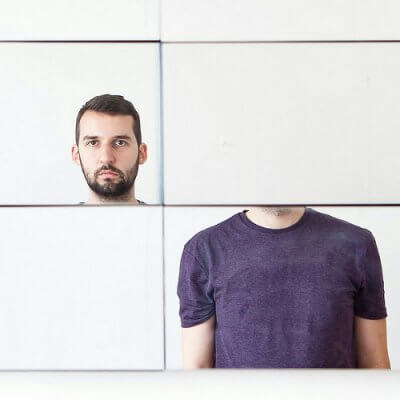Personality Disorder vs Personality Trait – The Difference You Need to Know

By: Chris Marchant
by Andrea M. Darcy
The internet has helped us all become more savvy about mental health.
But sadly, it has also led to mental health diagnoses being thrown around like casual weapons. Boss doesn’t like you? Narcissist. Girlfriend angry you broke up with her? Borderline.
In reality, only a small percentage of the population have personality disorders.
We all, on the other hand, have personality traits.
Why personality disorder vs personality trait matters
If you use personality disorders as a way to dismiss others, you are keeping the culture of stigma around mental health alive and well. This means those who actually do need help will be less likely to seek it.
And if this is a habit for you? Constantly giving others a mental health diagnosis? Then you are the one who has a personality trait that you need to consider. You might have problems with low self-esteem that see you constantly projecting. It can also mean you have intimacy issues, and use habits like this to avoid real connection.
What is the difference between a personality disorder and a trait?
The main difference between a personality trait and a personality disorder is one of severity and consistency.
A personality trait is a habitual pattern of thinking, feeling, and behaving. You will consistently have this trait, but it might not affect all of your life, and it is possible that it will change. An example is a trait of introversion. Perhaps around your family you are not as introverted, and with age you’ll become even less so.
A personality disorder is a way of seeing the world that deviates from the norm and means you have certain behaviours that negatively affect all of your life, all of the time, since early adulthood.

By: Mark Scrimshire
So someone who has narcissistic traits might be very cold and ruthless at work, but kind to his children and friends. Perhaps they only became so ruthless since a big promotion.
Someone who has narcissistic personality disorder would be unable to empathise with anyone in any area of life. They would have been this way since late adolescence.
Personality disorder vs personality trait
disorder vs trait:
think and feel entirely different than others vs can understand others
rigid and symptoms don’t change vs stronger or weaker through life
affects all areas of life vs a can affect one or several areas
leaves you unable to relate to others vs can sometimes cause problems
makes life a constant struggle vs causes issues now and then.
But what if you have several traits?
A personality disorder is just a cluster of certain traits together. So when does a trait go to a personality disorder?
For a diagnosis of a personality disorder a person will have a certain number of traits from a carefully put together diagnostic list. If you have a few of those traits, but not the required number, you wouldn’t have the disorder.
But what if you are, say, just one trait short of a disorder? Remember, personality disorders are consistent and pervasive. A psychiatrist will look very carefully at how your traits are affecting you and will look at your entire life history.

By: Neeta Lind
Sound confusing? It’s by no means a perfect system. Some mental health practitioners want to present personality disorders as cut and dried. But one could debate if disorders are really a ‘yes/ no’ situation, or should be seen as existing on a spectrum.
The truth about personality disorders
Personality disorders are not sicknesses we can see under microscopes. They are labels created by mental health professionals as a short hand to describe groups of people who have similar issues. These labels allow groups of mental health providers to efficiently help the same person.
People with personality disorders are people who do not see the world like others, or think, feel and behave like the majority.
So personality disorders are not as fixed as we might like to think, but defined by current social norms. What is considered now, in our Western culture, to be a personality disorder, might, say, have be seen as a shaman in another time and place.
The diagnostic criteria even changes slightly for some disorders with each new edition of mental health diagnostic bibles like the Diagnostic and Statistical Manual of Mental Disorders (DSM-V).
And the different mental health manuals themselves can have different criteria or group disorders slightly differently (the main other manual being the World Health Organisation’s ICD-10).
Is a label of a personality disorder a good idea?
For some, a personality disorder diagnosis is a great relief. They feel they can finally understand themselves and get the help they need.
For others, they feel an outcast, and trapped within their own selves. In such cases the label can be detrimental. The best thing to do is to seek treatment but try not to see yourself as the label. Focus on the other good things in your life that give you an identity as well. Your hobbies, your work, these, too, are what you are.
What if I have a personality disorder?
Try not to believe everything you read on the internet about personality disorders. Borderline personality disorder in particular is misunderstood, with sufferers demonised, overlooking the very loving side sufferers have underneath their impulsivity. BPD is perhaps one of the most treatable disorders, and there are certain therapies created just for helping BPD.
If you suspect someone else has a personality disorder, try to understand that they don’t at all see the world as you do. While you might need to protect yourself against some of their behaviours, they are humans like anyone. Very few people are a lost cause if they manage to seek the support and help they need.
And if I have a personality trait I am worried about?
Absolutely seek support. A counsellor or psychotherapist can help you look at new ways of coping that mean you feel back in charge of your life again.
We are pleased that after more than a decade of operating London’s largest group of psychotherapy clinics we are now able to connect you with high quality therapists on a more affordable and accessible basis at our sister site, harleytherapy.com.
 Andrea M. Darcy is a mental health and wellbeing expert and mentor with training in coaching and person centred therapy who also runs a consultancy helping people find the right therapy for their needs. She firmly believes in seeing each person as an individual, not a label. Find her on Instagram @am_darcy
Andrea M. Darcy is a mental health and wellbeing expert and mentor with training in coaching and person centred therapy who also runs a consultancy helping people find the right therapy for their needs. She firmly believes in seeing each person as an individual, not a label. Find her on Instagram @am_darcy





Great article. Very accurate and on-point. Some people fail to understand that PDs are only labels. I have narcissistic PD. When I realized this, it didn’t give me a relief, it – like at most self-aware narcissists – made me crash in my own eyes, and after that I kind of “used” the diagnosis as a “license to kill”.
Exactly Sam, they are labels. People are still unique individuals. Transferring all our identity to the label can be a way, like you point out, to throw away our power and responsibility. We have another article you might like directly about this, https://www.harleytherapy.co.uk/counselling/a-personality-disorder-diagnosis-helpful-or-a-trap.htm
My 9 year old daughter has “cluster b traits” In 2018 she suffered trauma and rejection from her father and would run down the driveway. He would take her photos during that time. She was also taken from me June 2018 as a stay at home mom and given to father as temo custidy, who had this as psych evaluation results “appears to be a controlled man… belittling… manipulative… lack of empathy… lack of boundaries” He has been abusivet to her verbally and mentally and has been alienating her frim me for over 2 years and used her as a pawn. What does all this mean? I am extremely worried about her!
Hi Donna, we don’t you, her, your husband, or the situation, so we unfortunately can’t say much here other than that it sounds a tricky situation. If there is a custody battle we’d advise a lawyer. Good luck!